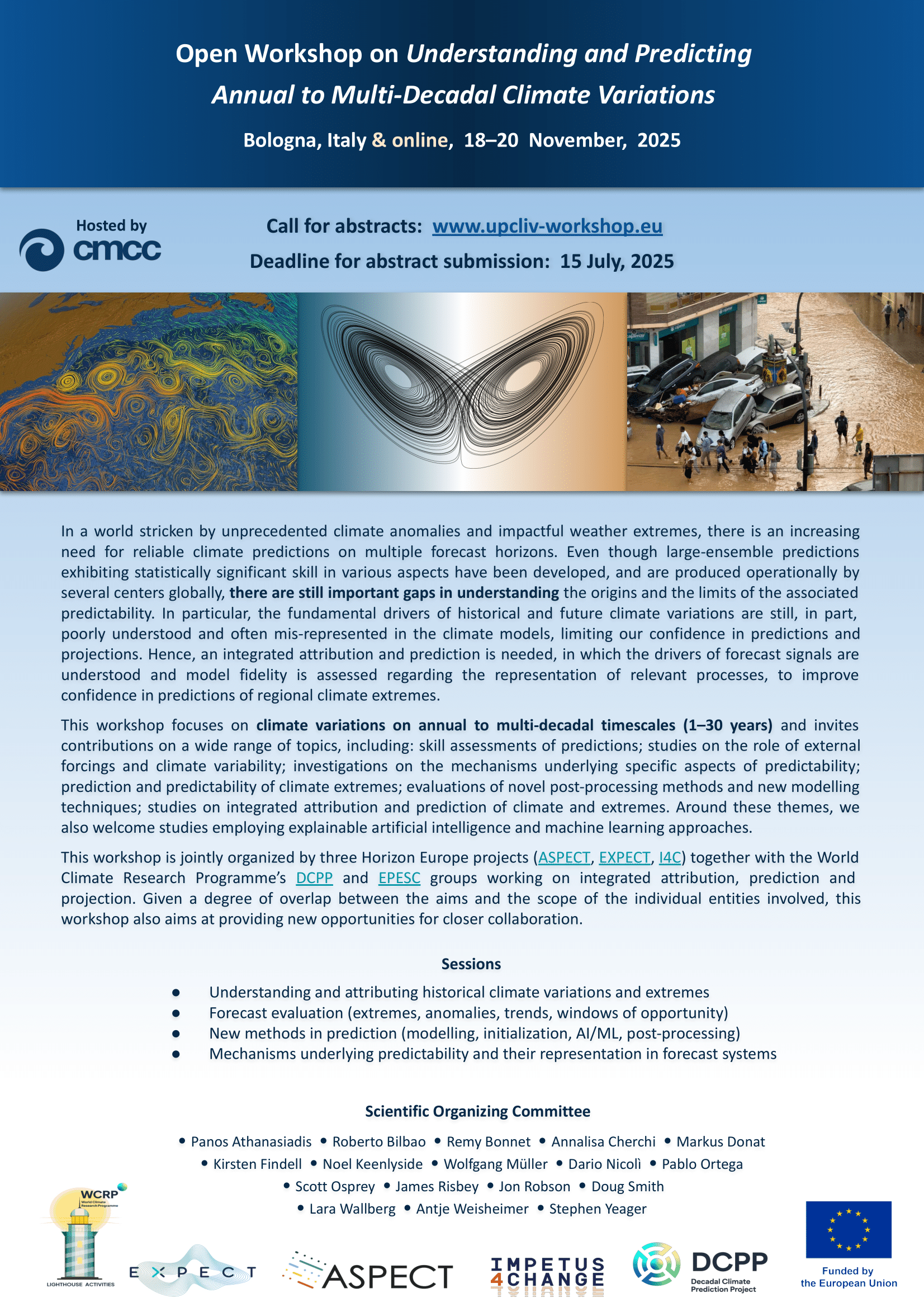In a world stricken by unprecedented climate anomalies and impactful weather extremes, there is an increasing need for reliable climate predictions on multiple forecast horizons. Even though large-ensemble predictions exhibiting statistically significant skill in various aspects have been developed, and are produced operationally by several centers globally, there are still important gaps in understanding the origins and the limits of the associated predictability. In particular, the fundamental drivers of historical and future climate variations are still, in part, poorly understood and often mis-represented in the climate models, limiting our confidence in predictions and projections. Hence, an integrated attribution and prediction is needed, in which the drivers of forecast signals are understood and model fidelity is assessed regarding the representation of relevant processes, to improve confidence in predictions of regional climate extremes.
This workshop focuses on climate variations on annual to multi-decadal timescales (1–30 years) and invites contributions on a wide range of topics, including: skill assessments of predictions; studies on the role of external forcings and climate variability; investigations on the mechanisms underlying specific aspects of predictability; prediction and predictability of climate extremes; evaluations of novel post-processing methods and new modelling techniques; studies on integrated attribution and prediction of climate and extremes. Around these themes, we also welcome studies employing explainable artificial intelligence and machine learning approaches.
This workshop is jointly organized by three Horizon Europe projects (ASPECT, EXPECT, I4C) together with the WCRP’s DCPP and EPESC groups working on integrated attribution, prediction and projection. Given a degree of overlap between the aims and the scope of the individual entities involved, this workshop also aims at providing new opportunities for closer collaboration.
Sessions:
– Understanding and attributing historical climate variations and extremes
– Forecast evaluation (extremes, anomalies, trends, windows of opportunity)
– New methods in prediction (modelling, initialization, AI/ML, post-processing)
– Mechanisms underlying predictability and their representation in forecast systems
Scientific Organizing Committee:
• Panos Athanasiadis • Roberto Bilbao • Remy Bonnet • Annalisa Cherchi • Markus Donat • Kirsten Findell
• Noel Keenlyside • Wolfgang Müller • Dario Nicolì • Pablo Ortega • Scott Osprey • James Risbey
• Jon Robson • Doug Smith • Lara Wallberg • Antje Weisheimer • Stephen Yeager




